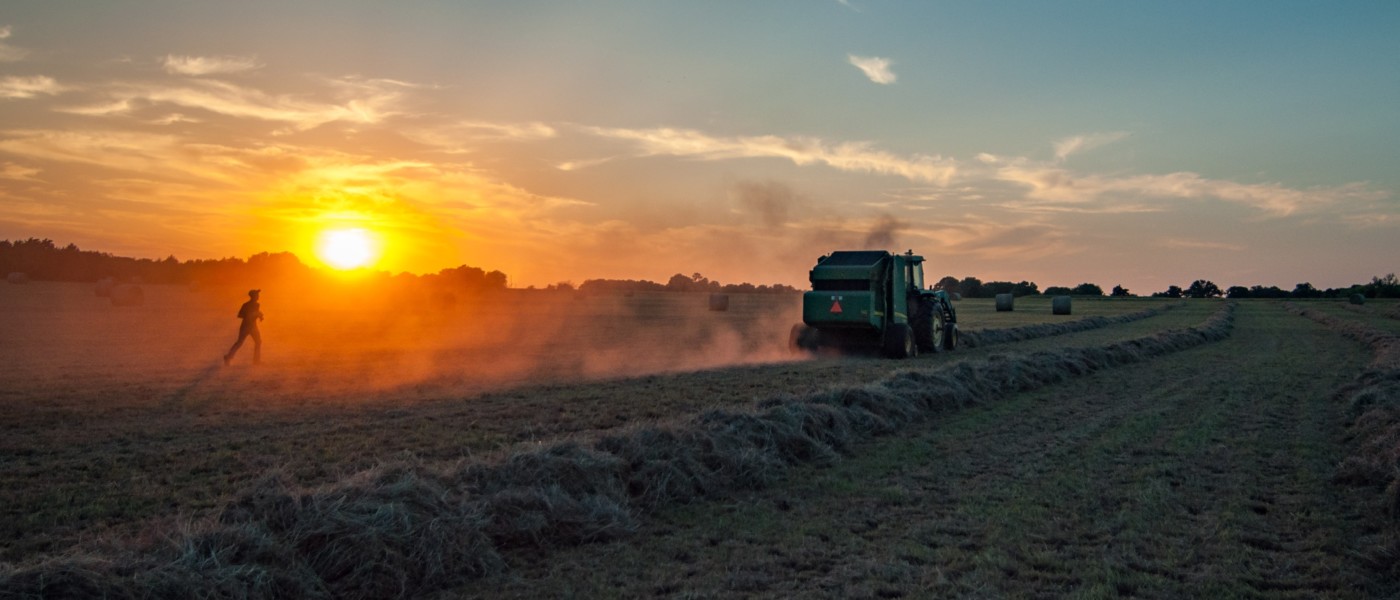On July 19, TheHill.com published an op-ed from Farm Aid detailing the unnecessary pain being felt by family farmers across the country. American farmers are being held hostage as bargaining chips in the trade war resulting from President Trump’s international tariffs. If the Trump administration is truly concerned about the fate of farmers and ranchers on the global stage, there is a long list of bold steps it could take, which we lay out in the piece. Read the entire piece below.
In the Trump administration’s trade war with China, American farmers are fast becoming the biggest losers. Despite the president’s recent assurances to the contrary, the administration’s reckless, self-serving policies will not level the playing field for our nation’s farmers. In fact, they are more likely to extinguish what’s left of family farm agriculture.
Farmers are enduring the worst cycle they’ve seen since the 1980s farm crisis: a multiyear slump in farm prices that has slashed net farm income by more than 50 percent since 2013. Increasingly, farmers are pinched by prices that are far below their cost of production, as well as rising input costs, growing debt, tightening credit conditions and much more.
Every day on our 1-800-FARM-AID hotline, we hear from farmers struggling to make ends meet. They can’t pay their electric bills. They can’t feed their animals. They grow our food and yet they struggle to feed their own families. As more and more farmers inch toward the brink of foreclosure, these self-inflicted trade wars with the European Union, Canada, China, and other major trade partners will only hasten the process.
The administration is asking farmers to “hold tight,” when in reality they have nothing to hold on to.
In such precarious times, holding American farmers hostage as a bargaining chip in a trade war, and telling them to wait for some yet-to-be-revealed plan, as Agriculture Secretary Perdue has done, is offensive and dangerous.
To add insult to injury is Perdue’s rationale behind this escalation: theft of intellectual property in the form of patented genetically engineered seed varieties. We should remember that farmers are not the ones who reap benefits from patented seed technologies. Those profits go to the patent-holding company itself, which these days is one of ever-fewer multinational seed conglomerates, while farmers watch their seed prices skyrocket.
The supposed reason for this trade war with China, then, is not to protect farmers — it’s to shelter multinational seed and chemical giants, like Bayer-Monsanto, Dow-Dupont and Syngenta-ChemChina, and other agribusiness giants who benefit from free trade regimes that put corporate profits before people.
The administration is asking farmers to “hold tight,” when in reality they have nothing to hold on to. In retaliation to America’s tariffs, China announced plans to impose a 25 percent tariff on numerous U.S. exports, including soy, corn, wheat, cotton, beef, pork and more. This move will cripple America’s already struggling farm families that send a huge volume of agricultural exports to China: $14 billion in soy, $160 million in corn, $391 million in wheat and many millions more in other agricultural products.
If the Trump administration is truly concerned about the fate of U.S. farmers and ranchers on the global stage, there is a long list of bold steps it could take. It could push back at the World Trade Organization and fight for Country of Origin Labeling (COOL), a policy widely supported by farmers and eaters, that would increase transparency in our food system and allow consumers to choose U.S. raised meat products.
It could stop the flow of taxpayer money to new and often foreign-backed mega-farms in the poultry, hog and dairy industries — all of which are flooding the market, crashing prices and pushing out existing farmers. It could support state-level policies designed to protect U.S. farmland from purchase by foreign entities.
Farmers should not be pawns in some game to score political points or surreptitiously do the bidding of corporations.
This administration could also challenge Congress to pass pro-farmer policies in the 2018 farm bill that establish fair farm prices, eradicate corrupt check-off programs and close loopholes that allow the biggest farms to keep getting bigger.
It could reform trade to make it truly fair. Current trade policy is predicated on the myth that export markets will save farmers in the absence of fair pricing policy, if they just get bigger, take on more debt and produce as much as possible to “feed the world” — a narrative that has been a prevailing force driving American family farmers towards extinction.
Trade, however, can benefit people and communities on all sides, and support good working conditions, strong wages, our natural resources, public health, and a slew of other interests — all it would take is standing up to the corporate interests that have dominated the political scene for far too long.
These are solutions, it is worth noting, that come straight from the family farmers and farm organizations we work with everyday at Farm Aid. Changing course will not only require a more rounded and diplomatic approach than a tariff war, but also the voices of these farmers at the table, leading the way.
But the Trump administration seemingly has no intention to establish truly fair trade or to rein in the power of multinational agriculture conglomerates. It would rather further the model of corporate land ownership, factory farming, consolidation, and vertical integration that has forced scores of farmers off the land and drained the rural communities they call home.
American family farmers and ranchers are critical to the health of our economy, our environment and our communities. They should not be pawns in some game to score political points or surreptitiously do the bidding of corporations. It is time for us to call out the administration for this dangerous gamble it’s taking with America’s farmers and our food system.



